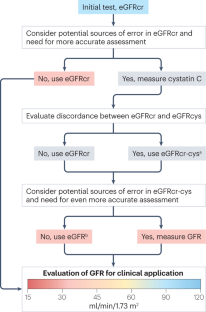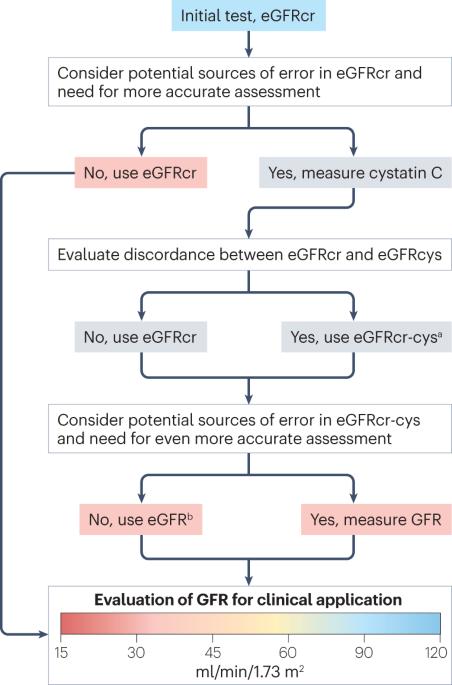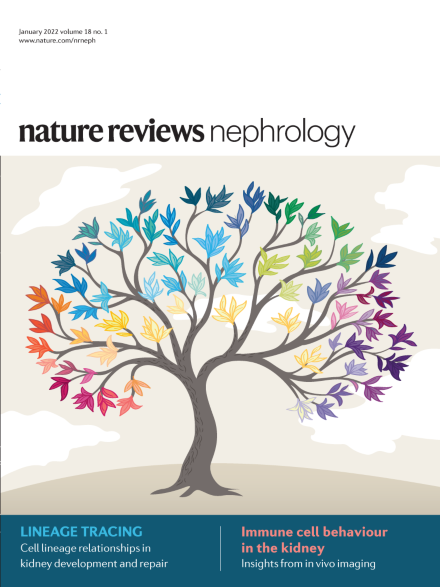慢性肾脏病药物管理,实现有效安全用药。
IF 28.6
1区 医学
Q1 UROLOGY & NEPHROLOGY
引用次数: 0
摘要
慢性肾脏病 (CKD) 患者通常患有多种疾病,需要多种药物治疗。肾功能障碍也会改变药物的药代动力学和药效学,从而改变药物的风险和益处;目前还不十分清楚所有情况下或所有药物的药代动力学和药效学变化程度。药物管理原则旨在通过各种流程,包括药物协调、药物选择、剂量调整、有效性和安全性监测,以及在不再需要时停药(去处方化),最大限度地提高患者群体的用药安全性和有效性。本综述旨在为实现对慢性肾脏病患者的最佳药物管理提供资源。我们介绍了妊娠和哺乳期、急性病和癌症患者用药的特殊注意事项,以及负责任地使用非处方药、草药、补充剂和病假规定的指南。我们还强调了全球范围内药物使用的不公平现象,并提出了改善所有慢性肾脏病患者获得优质基本药物的政策建议。促进药物管理的进一步策略包括患者教育和参与、使用数字健康工具、共同决策以及跨学科团队合作。自始至终,我们都将慢性肾脏病患者置于所有药物管理工作的中心。本文章由计算机程序翻译,如有差异,请以英文原文为准。


Drug stewardship in chronic kidney disease to achieve effective and safe medication use
People living with chronic kidney disease (CKD) often experience multimorbidity and require polypharmacy. Kidney dysfunction can also alter the pharmacokinetics and pharmacodynamics of medications, which can modify their risks and benefits; the extent of these changes is not well understood for all situations or medications. The principle of drug stewardship is aimed at maximizing medication safety and effectiveness in a population of patients through a variety of processes including medication reconciliation, medication selection, dose adjustment, monitoring for effectiveness and safety, and discontinuation (deprescribing) when no longer necessary. This Review is aimed at serving as a resource for achieving optimal drug stewardship for patients with CKD. We describe special considerations for medication use during pregnancy and lactation, during acute illness and in patients with cancer, as well as guidance for the responsible use of over-the-counter drugs, herbal remedies, supplements and sick-day rules. We also highlight inequities in medication access worldwide and suggest policies to improve access to quality and essential medications for all persons with CKD. Further strategies to promote drug stewardship include patient education and engagement, the use of digital health tools, shared decision-making and collaboration within interdisciplinary teams. Throughout, we position the person with CKD at the centre of all drug stewardship efforts. Patients with chronic kidney disease often require complex polypharmacy, require dose adjustments or discontinuation with changes in kidney function, and can be susceptible to the adverse effects of medications. This Review discusses the principles of drug stewardship — that is, the effective, safe and sustainable use of medications — for people with chronic kidney disease.
求助全文
通过发布文献求助,成功后即可免费获取论文全文。
去求助
来源期刊

Nature Reviews Nephrology
医学-泌尿学与肾脏学
CiteScore
39.00
自引率
1.20%
发文量
127
审稿时长
6-12 weeks
期刊介绍:
Nature Reviews Nephrology aims to be the premier source of reviews and commentaries for the scientific communities it serves.
It strives to publish authoritative, accessible articles.
Articles are enhanced with clearly understandable figures, tables, and other display items.
Nature Reviews Nephrology publishes Research Highlights, News & Views, Comments, Reviews, Perspectives, and Consensus Statements.
The content is relevant to nephrologists and basic science researchers.
The broad scope of the journal ensures that the work reaches the widest possible audience.
 求助内容:
求助内容: 应助结果提醒方式:
应助结果提醒方式:


